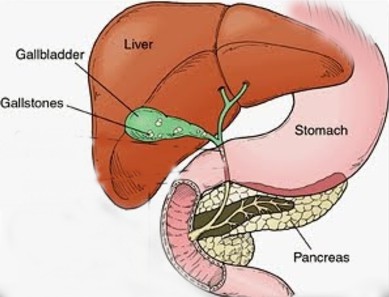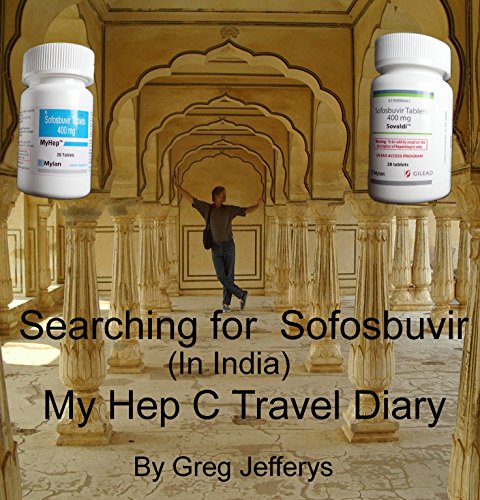Hepatitis C Blog
Greg Jefferys Hepatitis C blog deals with all the issues associated with hepatitis C
Hepatitis C and Gallstones
- March 21, 2021
- By Greg Jefferys
- 4 Comments

Having Hep C increases the chance of developing gallstones
The Liver, the Gall Bladder, and Gallstones
Almost every day I get asked about the connection between Hepatitis C and gallstones so in this post I will talk about Hep C and gallstones and what treatment options are available for people with gallstones.
The harsh reality is that people who have had Hepatitis C are at a high risk of developing gallstones.
Many people with Hepatitis C have issues with gallstones. This is because the liver and the gall bladder are intimately connected. Liver damage from Hep C will always affect the gall bladder’s functions, often resulting in gallstones.
In many cases, doctors recommend removal of the gall bladder as a solution to gallstones however such a course is not ideal unless there is no other option.
With no gall bladder, you may have a number of problems, including:
Difficulty digesting fat. Diarrhea and flatulence. Constipation. Vitamin D deficiency.
There are also the normal risks associated with any for of surgery, including possible intestinal injury.
What Is the Gall Bladder
The gallbladder is a small organ connected to the liver on the right side. The gallbladder’s primary function is to store bile, to release it into the small intestine to assist with the digestion of food.
Bile is a yellow-brown fluid produced by the liver. The liver can produce as much as three cups of bile in a day and the gallbladder can store up to a cup of bile.
Bile helps digest the fat in foods
What Are Gallstones?
Gallstones are pieces of solid material that form in the gallbladder. Gallstones are hard particles that form in the gall bladder. Gallstones may be tiny specks of material or as big as the whole gallbladder.
Gallstones may make their way out of the gallbladder into the channel through which bile travels from the gallbladder to the small intestine (cystic duct).
If gallstones become lodged in the cystic duct they can block the flow of bile causing inflammation of the gallbladder and pain. The pain can become severe.
Hepatitis C and Gallstones
Because bile is produced by the liver and stored in the gall bladder having impaired liver functions increases the risk of developing gallstones. So the risk of developing gallstones increases significantly if a person has chronic Hepatitis C. If a person has Hepatitis C and is over 60 years old the risk of gallstones increases even more.
Hepatitis C infection combined with older age, and liver cirrhosis significantly increase the risks of gallstones developing.
The more damage that has been done to the liver by Hepatitis C the higher the risk of gallstones.
Once the Hep C infection is cured the liver will heal itself however if gallstones have developed during the phase of Hep C infection, the healing of the Hep C and the healing of the liver will not remove the gallstones.
Natural Options for Clearing Gallstones
DIET
A healthy diet including plenty of fresh fruits and vegetables and avoidance of fats and greases is important both for preventing and clearing gallstones. A good diet, rich in fibre will help establish a healthy microbiome in the gut is important. Fresh natural yogurt will also help.
Starting the day with freshly squeezed citrus juice BEFORE breakfast is also recommended.
Castor Oil Packs and Gallstones
Abdominal castor oil packs over the liver/gallbladder area an excellent natural therapeutic treatment for gallbladder dysfunction recommended by the famous healer Edgar Cayce. This treatment basically involves soaking a square of wool flannel (sized about 12 inches by 12 inches) in castor oil and placing it over the area of the liver and then putting a hot water bottle on top of the castor oil/flannel patch. The warmth and castor oil stimulates circulation of the liver and gall bladder. This will bring the best result in conjunction with a good diet and regular exercise.
MEDICINE
A healthy digestive system is critical to liver and gallbladder health. If you do not have regular bowel movements the use of mild laxatives such as senna, Eno salts, Fletcher’s Castoria may help with constipation. However it is not wise to rely on laxatives for regular bowel movements, a good diet and plenty of water is much better and should establish healthy bowels.
Vitamin D and Liver Health
New evidence suggests that low levels of Vitamin D may cause non-alcoholic fatty liver disease. A healthy liver means a healthy gallbladder so make sure you get enough vitamin D. https://www.ncbi.nlm.nih.gov/pmc/articles/PMC6360993/
Gallstones and vitamin D deficiency
Low vitamin D may cause gallbladder stone formation
Gall bladder removal may reduce vitamin D and magnesium levels. This may be due to reduced absorption of fat-soluble vitamins (D, E, A and K).
People with compromised liver or digestive function are often vitamin D deficient. Exposure of skin to the sun’s rays enables the body to manufacture vitamin D. However, this process occurs in the liver and kidneys so people with a sluggish liver often do not manufacture vitamin D adequately.
Getting Enough Vitamin D
- Sun rays exposure, get into the sunshine, and expose as much skin as you can to the sunlight. Shirt off, wear shorts or strip off entirely. When ever I work in my garden, if the sun is out my shirt is off!
- Oral supplements. In my opinion, you cannot beat getting vitamin D from the sunshine however if this is not possible the use oral supplements. When the blood level of vitamin D is below 30 ng/ml, a minimum of 1,000 IU/day will be needed for children and 1,500 to 2,000 IU/day of vitamin D3 for adults.
SURGERY as a treatment for Gallstones
For acute cholecystitis involving significant fever and inflammation, surgical removal of the gallbladder is certainly wise.
Can Hep C Affect Your Gallbladder, Can Hep C Cause Gallbladder Problems, Can You Take Vitamin C After Gallbladder Removal, Does Hepatitis Cause Gallstones, Hep C And Gallstones, Hep C Gallbladder Removal
- Post Categories
- Uncategorized
Greg Jefferys
Tags
4 Comments
Leave a Comment Cancel Reply
Join my Hep C Support Group.
Talk privately to other people
with Hep C in a closed group.
Disclaimer
Greg Jefferys’ blog is provided for informational purposes and is not intended as Medical advice, diagnosis, or treatment.
Whilst Greg Jefferys is doing a PhD it is not in medicine. Any advice offered is offered in good faith and based on an extensive general knowledge of Hepatitis C and access to generic Hepatitis medicines Greg Jefferys has acquired through his work as an advocate and activist
The Hep C Buyers Club is not a company or corporate entity but simply a loose structure intended to offer a free information to people with Hepatitis C
Other Books
Click here for other books by Greg Jefferys.
for Kindle
I have converted this diary into a kindle book for folk who might like it in that format. I have added a lot more depth than the original diary contains, it’s more of a complete story in book format. I have priced it as low as Kindle allows me to @ 99 cents. If you are interested just click here to go to the Kindle page.
Recent Posts
-
Hepatitis C Treatment and Liver Cancer June 19, 2024
-
Motivate C a Profitable Hep C Initiative April 29, 2024
-
After Hep C Healthy Liver Diet September 4, 2023
-
Fear of Hep C Treatment April 14, 2023
-
My Letter to Joe Biden March 2, 2023
-
Dormant Hepatitis C November 27, 2022
-
How Much water to drink during Hep C treatment October 13, 2022
-
Hep C and Peripheral Neuropathy August 21, 2022
-
Fatigue Brain Fog and Hepatitis C August 18, 2022
-
Hep C and Liver Cancer May 18, 2022
Contact Us
If you have any questions please reach out by email, or complete the below form.
Greg Jefferys3439 Channel Highway, Woodbridge, Tasmania, 7161.
Email: gregjefferys@outlook.com



Hey Greg this is Wade Coker from Texas. I’ve recently been put in the hospital for liver failure. I’m much better now but I still have a few questions for you. I was on like 9 different medications due to my ankle pain and other medication prescribed by other doctors. And I believe that is the reason behind my liver failure. I was over medicated . I’ve been hep c free for over two years now and had it checked again while I was in the hospital. Came back negative. Can you please tell me what I need to do to continue living?
Hi Wade
yes it definitely sounds like the doctors were giving your liver too much wo0rk to do with all those medications!!!
Please, what the cost of treating hepatitis c in Nigeria? Where can I get the treatment here in Nigeria?
The cost of Hep C treatment purchased in Nigeria is usually around #300,000 naira or more. However I can send it to you in Nigeria for #120,000 naira